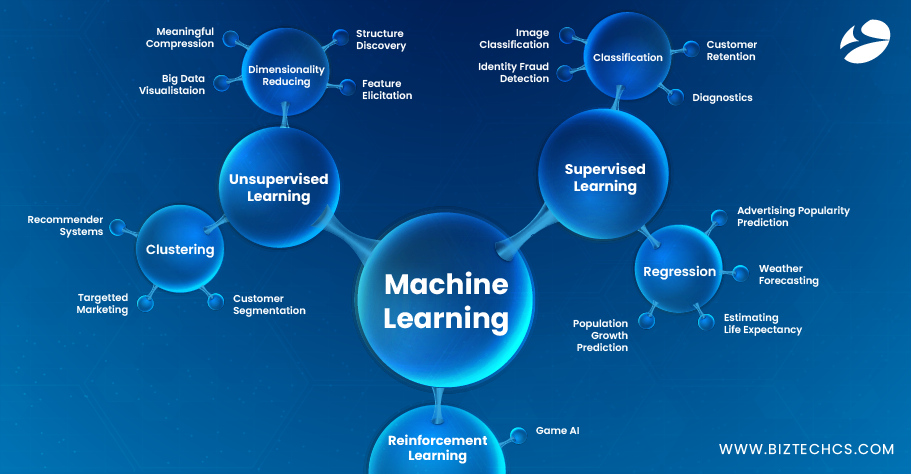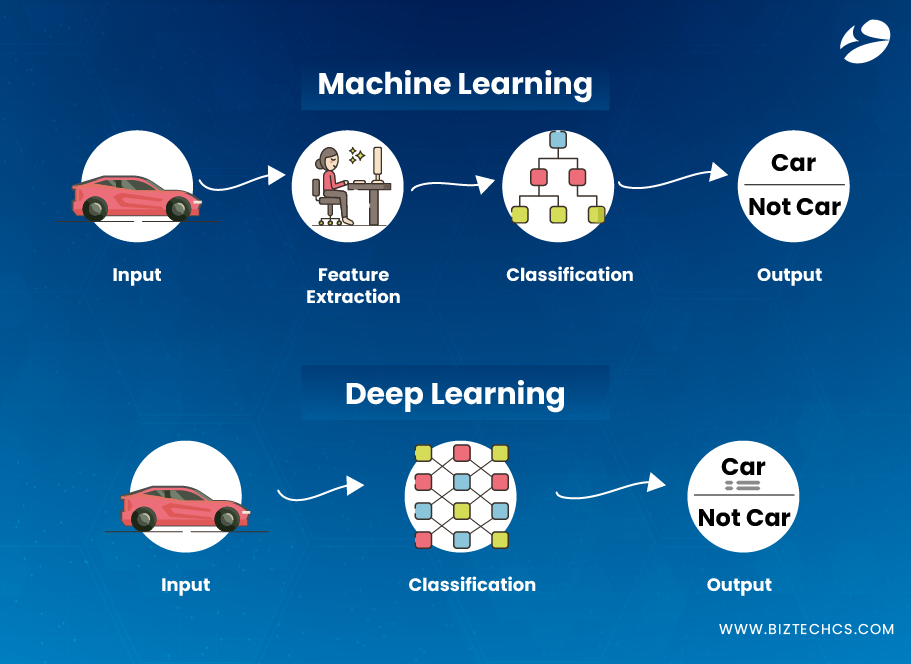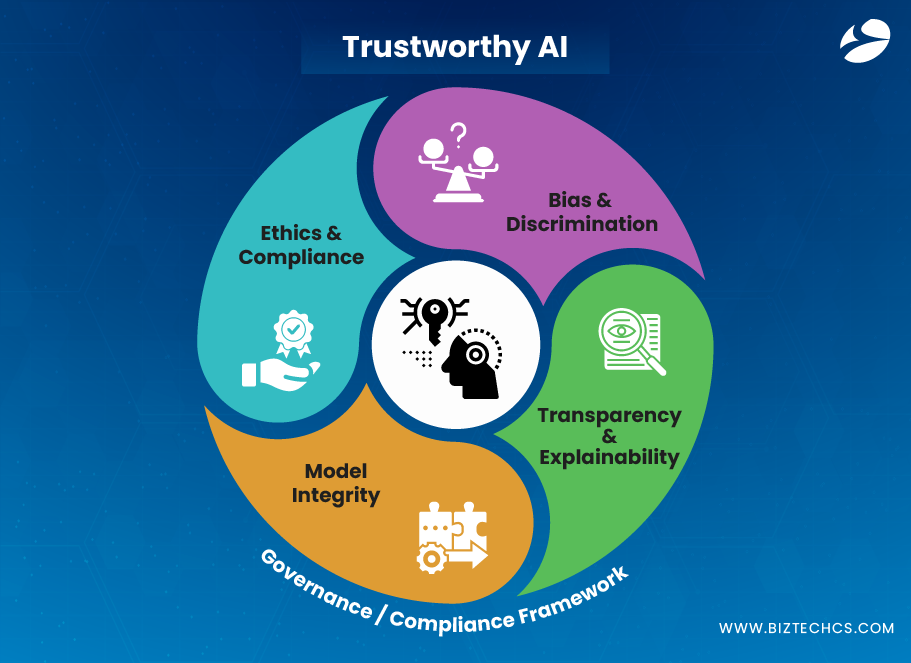A Beginner’s Guide To Artificial Intelligence & Its Key Concepts
06 Feb, 2024
7 min read
06 Feb, 2024
7 min read
Table of content

Artificial Intelligence or AI – is amongst a few terms that have surfaced repeatedly in various parts and phases of our lives. From personalized eCommerce product recommendations to AI-guided customer support, Artificial Intelligence is everywhere; revolutionizing every sector.
We can see many applications of Artificial Intelligence and machine learning from the voice assistants we use to the improved maps and navigation. While some of us are aware of the concepts of AI, most of us aren’t.
And if you are an entrepreneur, developer, or simply an AI enthusiast – you just can’t do without this information. This guide should help you get familiar with the various concepts of AI, its benefits, challenges, and prospects.
Artificial Intelligence refers to the science of making machines learn or simulate human behavior. With AI tools, machines can think like humans and partake in decision-making and problem-solving.
To be exact, artificial intelligence is associated with the learning of machines to simulate human cognitive functions. Machines (or computers) learn how to simulate such behavior by processing heaps of data and undergoing supervised or unsupervised learning.
When studying artificial intelligence meaning, you will come across several unfamiliar terms. Let’s explore a few such terms in this context.
Machine Learning: This branch of artificial intelligence states that machines can make decisions and identify patterns depending on the data they collect. It ensures machines can perform tasks even without receiving explicit information.
In machine learning, rules aren’t explicitly coded into the algorithm. Rather, the machine learning algorithms learn to simulate such behavior by analyzing large datasets.
 Types of machine learning:
Types of machine learning:

Machine learning Vs Deep LearningDeep Learning: Deep learning utilizes multi-layered artificial neural networks to model complex patterns in data. It’s called “deep” because of the number of layers through which the data is transformed. It uses Neural Networks, algorithms modeled on the human brain, consisting of interconnected units (neurons) that process data in layers.
This subset of machine learning has multiple applications in image and speech recognition, autonomous vehicles, natural language processing, and medical diagnosis.
Cognitive Computing: This field of computer science enables the simulation of human cognitive functions through a machine. It enables machines to process and interpret complex data and simulate human thought processes and decision-making. Such systems are extremely useful in efficient and accurate decision-making, personalization, and improved decision-making.
Natural Language Processing: NLP involves the development of algorithms and systems that can read, decipher, understand, and make sense of human languages in a valuable way. There are multiple applications of Natural Language Processing. For example, sentiment analysis, language translation, text summarization, chatbots and virtual assistants, content recommendation systems, speech-to-text, and text-to-speech services.
Artificial Intelligence can be categorized in multiple ways –
I. Based on Capabilities
II. Based on Functionalities
While some of these kinds are put into use for AI development in various fields, many of these are still a theoretical concept and in the research phase. In the years to come, you shall see more development in this regard.
Now that we have talked about the way artificial intelligence works, it is time to understand how these AI tools learn to work. While we have already talked about machine learning and the various types of learning associated with it, here’s a step-by-step description of how AI tools learn.
Let’s explore the different ways!
1. Data Collection: Every AI system relies on data for learning. Data could be in the form of text, speech, image, or statistics.
2. Data Processing and Preparation: The collected data from step 1 has to be processed and prepared for further analysis. In this stage, any redundant or erroneous data is removed and necessary structuring or formatting is done.
3. Choose Algorithm: Artificial Intelligence applications work based on algorithms. So, you have to develop algorithms that instruct the AI tool to process data and make decisions. You will have to pick the algorithm based on the specific type of AI tools you are developing. You can use machine learning algorithms or neural networks, deep learning algorithms based on the complexity of your task.
4. Train AI Models: The Artificial Intelligence systems are trained on the data. The AI algorithm tries and adjust itself for greater accuracy in performing specific tasks.
5. Testing and Validation: To test and validate the AI tool, its performance is evaluated with an entirely different set of data which is not used for training. It helps ensure that the tool is capable of working equally well for any unique dataset.
6. Deployment: After the AI tool passes the testing phase, it is deployed for use in the real-time environment. Here, you have to keep a close eye on the performance and accuracy level of the AI tool when it works with new data.
7. Feedback and Iterative Improvement: AI systems learn over the course of time with feedback and improve their capabilities. The continuous learning helps it adapt to changing environments and new information.
Artificial Intelligence has made significant strides in various sectors, revolutionizing how tasks are performed and services are delivered. Whether it is improvement in efficiency, productivity, or accuracy, AI tools can help in numerous ways.
Let’s look at the various areas AI has found its applications.
Healthcare
Finance
Retail
Manufacturing
Education
Customer Service
AI-powered chatbots and virtual assistants can handle customer queries efficiently and give resolutions. More tricky problems can be solved by the support team. It reduces the cost of customer support and you can minimize wait time as your customers get instant support 24/7.
AI Generative Tools
With AI generative tools, you can create new and unique content, ideas, and patterns. The outputs can range from text and images to music and code. It can automate or assist in creative processes, helping individuals improve their productivity.
Examples of generative AI tools: Bard, ChatGPT, GitHub Copilot, Jasper, Chatsonic, Claude, Synthesia, etc.

As AI is rapidly becoming an indispensable part of our daily lives, several ethical questions are being raised by users. Thus, it is all the more important for businesses that leverage AI to handle it responsibly.
Here are some ethical considerations for you before you learn AI and machine learning and put it to use!
The future of AI is a topic of much speculation and excitement, as it holds tremendous potential to transform various aspects of our lives, industries, and societies. While some AI concepts are still present theoretically, some of these are practically feasible too.
In the days to come, you can expect these more complex AI algorithms and systems to become more sophisticated and accurate. But with their development, it is up to you to handle AI systems responsibly, maintaining the desired level of transparency and security.
Furthermore, you can avail of AI services to get expert help with the development and implementation of AI systems within your business processes. Looking for one such technical partner who can help with the integration of AI system? BiztechCS might be your single-stop solution with our zealous team of passionate AI enthusiasts.
Connect with the team for a consultation!
Last but not least, the future of AI is filled with unseen possibilities to be explored by scientists. Therefore, it is integral to keep ourselves updated with the latest of the industry. So, keep reading!

.NET
197
By Devik Gondaliya
15 Jul, 2025

.NET
190
By Devik Gondaliya
15 Jul, 2025

Odoo
248
By Biztech
15 Jul, 2025